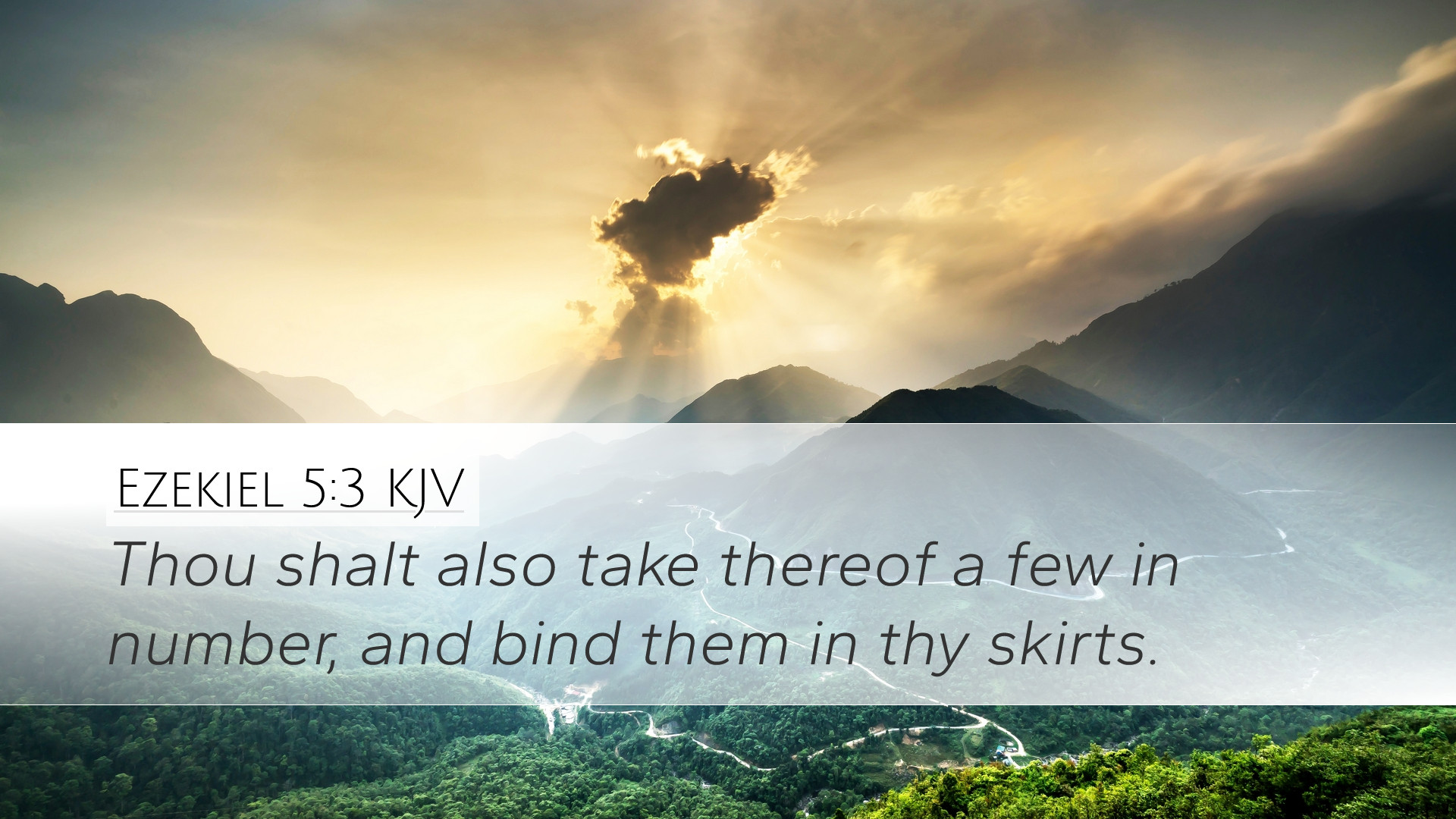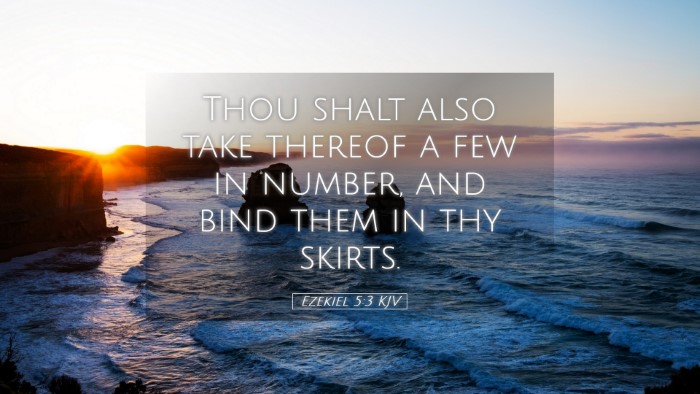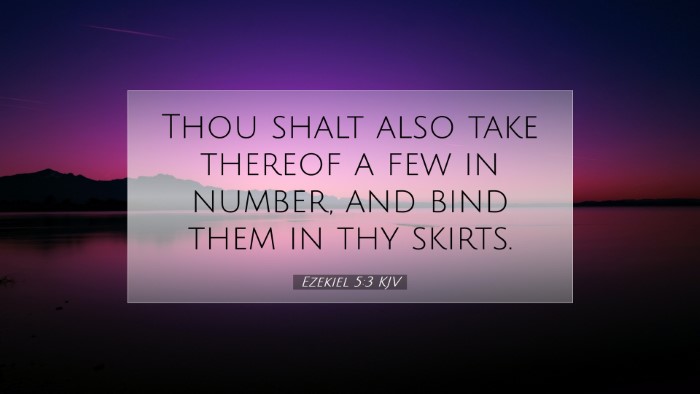Commentary on Ezekiel 5:3
Ezekiel 5:3: "And take thou unto thee a few hairs of the head, and bind them in a skirt of thy robe."
Introduction
The Book of Ezekiel, a profound and complex prophetic work, addresses the calamity facing the people of Israel due to their disobedience to God. In Ezekiel 5:3, the Lord commands His prophet to perform symbolic acts that illustrate the impending judgment and the preservation of a remnant. This verse serves as a pivotal moment within a broader narrative concerning the fate of Jerusalem and the people of Israel.
Textual Analysis
The directive to take a “few hairs” may seem trivial but is laden with theological significance. It represents a remnant, a theme recurrent in both the Old and New Testaments. Just as God preserved a remnant in Israel, He signals hope amidst judgment.
Exegesis and Theological Insights
Symbolism of Hairs
According to Matthew Henry, the act of collecting hair symbolizes a remnant's survival amidst dire circumstances. It demonstrates that even in times of widespread ruin, God retains a portion of His people whom He will protect and preserve. Henry highlights how prophetic acts serve to engage the audience spiritually and emotionally.
Implications of the Skirt
Albert Barnes expounds on the imagery of binding the hair in a skirt, suggesting that this act conveys protection and care. The skirt represents the prophet's covering, indicating that those who remain faithful to God are under His divine protection. It indicates God's intention to preserve His people, even when they face judgment.
Historical Context
The historical backdrop of Ezekiel places the prophet among the exiles in Babylon, speaking to a people devastated by sin and national calamity. Adam Clarke emphasizes that understanding the context is crucial for interpreting the symbol of the hair. In the ancient Near East, hair could signify life and vitality, and its severance was often associated with mourning or loss, accentuating the gravity of Israel's condition.
Practical Applications for Modern Followers
This verse holds relevance for contemporary believers as it emphasizes God's unwavering presence and His covenant relationship with His people. Just as Ezekiel operated in a time of disobedience, modern followers are called to remain faithful and steadfast.
- Hope in Desperation: God preserves a remnant even in times of great trial.
- Symbolic Acts: Engaging in symbolic acts of faith can reaffirm our commitment to God.
- Divine Protection: Recognizing that in our low moments, we are still under God's care.
Conclusion
Ezekiel 5:3 encapsulates crucial theological themes regarding judgment, mercy, and preservation of a remnant. The act of binding the hair, as elucidated by the insights of notable commentators such as Matthew Henry, Albert Barnes, and Adam Clarke, offers rich layers of meaning. This verse invites pastors, students, theologians, and scholars to delve into its depths, exploring how God's faithfulness prevails, even amidst human failures.


